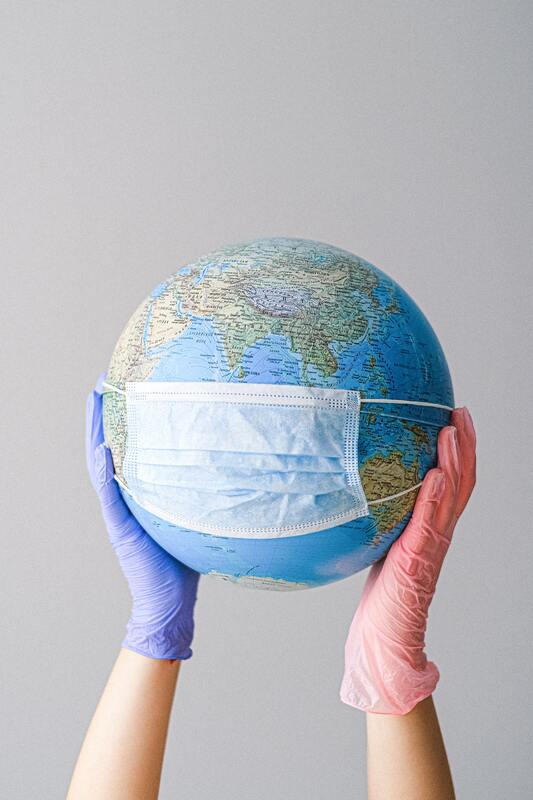|
By: O. Lotufo It’s been around 21 months since school first closed in March of 2020 amid the rising Covid-19 cases in Brazil. At first, being isolated at home, learning and working through digital platforms, and wearing masks whenever we stepped outside our front doors felt strange; it seemed like we were living in a dystopian movie. Yet, we slowly grew accustomed to these unprecedented habits, which are now regarded as ordinary. With the introduction of vaccines, countries begun to “reopen” after the hard blow that was the pandemic. Nations started permitting tourism, allowing in-person classes to return, opening restaurants and shops, amongst others. It began to seem as though this flick was coming to an end. However, variants of the virus have begun to appear, the most recent being the mutation found during early November in South Africa; laboratory technicians in Johannesburg realised something unusual when testing covid samples. Such occurrence was then reported at other locations in the country, and the discovery coincided with the increase of Covid cases in the area: this can be seen, for example, by the fact that on November 22nd, 2021, the nation reported only 312 new cases, and by December 4th this number had risen to 16,366. On the 26th of November 2021, the World Health Organization (WHO) declared the variant – named Omicron – to be of concern, because of its several mutations which may affect people in different ways and may be highly transmissible. Since, the Omicron variant has been identified in 38 countries, and the UK alone has reported a total of 104 confirmed infections (05/12/2021). Many nations were already experiencing an upsurge in cases from the Delta variant, leading governments to impose travel restrictions as a result: Israel, Japan and Morocco banned all foreign arrivals, the United States has closed its borders to eight African countries, and other nations are also considering inflicting regulations. Currently, various laboratories are investigating the variant, carrying out research to discover more about it. The proper transmissibility is not yet known, however “Tom Wenseleers, an evolutionary biologist at the Catholic University of Leuven in Belgium, estimates that Omicron can infect three to six times as many people as Delta, over the same time period” (The Guardian, 2021). It is also known that the variant can trespass our immunity and reinfect those who have already developed antigens. Despite this, scientists are confident that the vaccines will still be able to provide protection against serious symptoms and hospitalizations, especially since they have already been successful against many other variants. Nevertheless, more lab data is necessary to determine vaccines’ efficiency for certain. Dr. Anthony Fauci, a scientist and assessor to The White House during the pandemic, stated that “thus far, the signals are a bit encouraging regarding the severity [of Omicron]. But again, you got to hold judgment until we get more experience.” Likewise, Professor Karl Lauterbach even called Omicron a “Christmas gift”, as its mutation might cause people to be merely infected and not trigger serious consequences, thus increasing immunity. Many labs around the world are working towards finding out more about the variant, and the results are expected within the coming weeks. The possibility that vaccine efficiencies will decrease with this mutation also caused booster doses to be encouraged in many countries, including the United States and Brazil. Bibliography: https://www.bbc.com/news/world-us-canada-59512368 https://www.bloomberg.com/news/articles/2021-11-29/young-kids-make-up-10-of-hospital-cases-in-omicron-epicenter https://edition.cnn.com/2021/12/02/world/south-africa-omicron-origins-covid-cmd-intl/index.html https://edition.cnn.com/world/live-news/omicron-coronavirus-variant-12-06-21-intl/h_ce69c3114c964a930c2b4c0e2e4d04c1 https://edition.cnn.com/2021/11/29/world/covid-omicron-variant-countries-list-cmd-intl/index.html https://www.mirror.co.uk/news/uk-news/omicron-variant-could-christmas-gift-25578670 https://www.nytimes.com/2021/11/28/world/middleeast/israel-morocco-travel-bans-omicron.html https://www.theguardian.com/world/2021/nov/29/some-countries-opt-for-caution-as-omicron-covid-variant-spreads https://www.theguardian.com/world/2021/dec/05/omicron-what-do-we-know-about-the-new-covid-variant https://www.who.int/news/item/28-11-2021-update-on-omicron
0 Comments
Your comment will be posted after it is approved.
Leave a Reply. |

